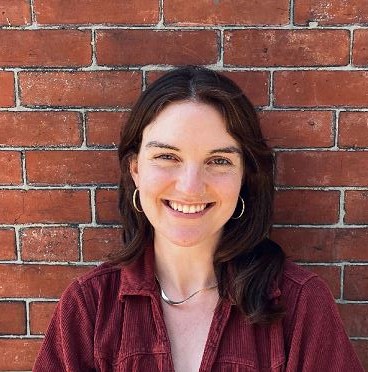At Promises we believe that the mental health of a loved one affects the other individuals within their relationship circle. The family unit can be defined as parents, spouses, siblings, roommates, coworkers, friends, or any person or group of people that are in relationship together. Research shows that family involvement and care during the treatment process can have a positive impact on treatment outcomes. The interdependence of relationships makes it difficult to treat an individual without addressing their network and family as well.
It can be nerve-wracking to have a loved one in treatment, and even more so if they are still contemplating treatment. We here at Promises want to give you resources and support during these unsettling times.
While your loved one is in our care, you may hear from multiple team members (Admissions Coordinator, Primary Therapist, Care Coordinator, etc.).
Please note that discussion of your loved one can only take place if they have signed a Release of Information Form. While it is ultimately up to them to decide who we will speak with, we begin the conversation about including family from the very beginning of the treatment process.
You have spent time and energy helping your loved one, and you have come to the right place. They are in great hands at Promises. Now it is our chance to help you. The free webinars and resources on this page are a good start to your care. By taking care of yourself, you become the best aid in the recovery of both your loved one and yourselves.
Click on an event below to join the meeting:
Welcome to Treatment Every Monday 12 PM CST and 6:00 PM CST
Family Welcome to Treatment Webinar (12pm CST Registration)
Family Welcome to Treatment Webinar (6pm CST Registration)
In this live event, we will walk through stages of treatment for substance use and mental health. We will discuss what to expect in the recovery process for everyone, including education and support for people connected with someone in treatment. The facilitator will address common concerns, what the stabilization stage looks like, and normalize reactions to having someone you care about enter treatment
Rotating Education Series Every Tuesday 12 PM CST and 6:00 PM CST
PROTECTIVE FACTORS & RESILIENCE WEBINAR (12pm CST Registration)
PROTECTIVE FACTORS & RESILIENCE WEBINAR (6pm CST Registration)
January 23rd | February 20th | March 19th | April 16th | May 14th | June 11th
Protective factors are things that contribute to mental health and allow a person to be resilient in the face of challenges. Someone with a lot of protective factors—such as strong relationships and healthy coping skills— will be better equipped to overcome life’s obstacles. Join me to explore what our protective factors are and how to strengthen them to move ourselves and our relationships forward in recovery.
FROM CODEPENDENCY TOWARD BALANCE WEBINAR (12pm CST Registration)
FROM CODEPENDENCY TOWARD BALANCE WEBINAR (6pm CST Registration)
January 30th | February 27th | March 26th | April 23rd | May 21st | June 18th
Have you been told you’re in a codependent relationship? Have you been labeled an “enabler”? Do you want relief from the roller-coaster of unbalanced relationships? Let’s explore what codependency is, how it shows up in the context of mental illness and substance use, and how to move away from it in recovery. We will speak about Interdependence and how boundary setting can lead to a more balanced relationship with those we love.
HEALING THE BRAIN WEBINAR (12pm CST Registration)
HEALING THE BRAIN WEBINAR (6pm CST Registration)
January 9th | February 6 | March 5 | April 2 | April 30 | May 28th | June 25th
Join us in exploring the Brain! This introductory webinar will touch on brain development, the effects of substance use on the brain, and how mental health affects our ability to regulate our moods. We will begin exploring how the brain heals and how you, as a family support, can care for yourself to create an environment for healing. Practical tips and skills will be identified as well.
RELATIONSHIP SKILLS FOR RECOVERY WEBINAR (12pm CST Registration)
RELATIONSHIP SKILLS FOR RECOVERY WEBINAR (6pm CST Registration)
January 16th | February 13th | March 12th | April 9th | May 7th | June 4th
Join us in an introduction to relationships skill building for early recovery. As your loved one navigates their early recovery process, there are ways we can also cultivate skills and begin healing. In this overview webinar we will touch on how to:
– Connect through clear communication
– Explore our window of tolerance and how it interacts with the recovery process
– Begin to build radical acceptance
Gwenndy’s Resource Center
Each month, Directors of Family Services Wendy and Gwenn will share two new resources in support of education, connection, and recovery. To read their bios, please see below. Books, podcasts, YouTube videos, articles, peer support groups, and more will be featured, along with a short blurb. Check back each month for updated resource recommendations!
First and foremost! To find a local, independent bookstore, follow this link. If you have a library card (or can get one) Libby is an online platform that allows you to enter a library card number and “take out” books to read or listen to. You can find that here.
April 2024
Window of Tolerance Worksheet on Mind My Peelings (Website)
Link: https://www.mindmypeelings.com/ Peruse this user friendly (great for adolescents too!) website to find worksheets on: Window of Tolerance Awareness, Challenge Worries and Anxious Thoughts, and a Health Triangle Assessment. There is a good review of Happy Chemicals in our brain and explaining Depression and Anxiety in simple, jargon-free language. This site was created during the pandemic, but still holds true for today. – Wendy
SMART Recovery Friends & Family (Peer Support and Skills Group)
Link: https://smartrecovery.org/family SMART Recovery was established in 1994 as a secular alternative to the faith-based programming of Alcoholics Anonymous (people often engage with both!). This organization values mutual support and connection and has helped many many people in their recovery. Similar to what Al-Anon offers in relation to Alcoholics Anonymous (AA), SMART Recovery provides virtual and in person support groups. If you are learning how to be in relationship with someone struggling with substances, this is a resource for you to connect with others. It can be an incredibly helpful space to share your experience and learn from others. – Gwenn
March 2024
Beyond Addiction by Jeffrey Foote, Carrie Wilkens, Nicole Kosanke, and Stephanie Higgs (Book)
This book offers a truly compassionate walkthrough of how family members can support change. When it comes to substance use and compulsive behaviors in people we care for, the message we hear often sounds like “let them hit rock bottom, there is nothing you can do.” These authors offer a different perspective. The language is strength-based and helpful. “Beyond Addiction” outlines tangible steps you can take to make active change in your life. It is science-based, concrete, and solution-focused, working directly with behavioral change on your part.
– Gwenn
Rooted Recovery Stories with Jason Wahler and Patrick Custer (Video – about an hour)
Link: https://www.promises.com/rooted-recovery-stories/episode-127-jason-wahler/
This engaging conversation touches on Brain health, Family support, Mental Health struggles, Suicide, Nonfamily mentor relationships, Family doing their own recovery, key tools for sobriety utilized over time, Relapse, Codependency with his wife, and so much more. If you’ve been attending the Tuesday night webinars, so much of what we discuss shows up in this hour-long podcast. Tune in!
– Wendy
February 2024
Drama Free by Nedra Glover Tawwab (Book)
This bestselling self-help book looks at how relationships with our families impact our personal mental health. The three sections of the book neatly describe: 1. How to describe your family relationships, including their strengths and their weaknesses. 2. How to proceed in relationship with family or choosing to step away from some relationships. 3. Troubleshoot specific relationship bonds. The writing is punchy and vibrant. Nedra utilizes the reframe as a helpful tool for looking at relationships through different perspectives. The solutions tend to be a bit prescriptive and also a helpful way to start navigating relationships differently.
– Wendy
Boundaries with Brené Brown (Video – 5:40min)
Link: https://www.theworkofthepeople.com/boundaries
Brené Brown has the wonderful ability to put clear language to seemingly complex topics. She is a researcher and storyteller and offers so much to the field of emotions and interpersonal relationships. In this video, she discusses how boundaries support generosity. She outlines the distinction between compassion and empathy. She offers some hard (and important!) truths about what we assume about other people and their actions. She does all of this with humor, clarity, and a bit of cursing. I highly encourage spending some time listening to her talk in various videos you can find through a quick search on YouTube.
– Gwenn
Wendy Elliott MFT LPC

Promises Behavioral Health Corporate Director of Family Services, Wendy Elliott MFT, aims to engage families and loved ones during the whole continuum of care. Patients in treatment for Substance Use Disorder and Mental Health do not need to wait until they complete treatment to connect with their families. As a Director of Family Services, she builds a network of education, support, and ways to engage with loved ones throughout the treatment process.
After spending most of her life in the Midwest, Wendy and her family relocated to Philadelphia. Before working as a family therapist, Wendy spent time as a science teacher, business owner and small-scale farmer. It was the work on her farm that ignited her systems thinking… sparking an interest in the family system as a tool for connection and healing. She has completed a master’s degree in Family Therapy from Drexel University and a certificate from the Opioid Workforce Expansion Program, Interdisciplinary training initiative. This education helped prepare Wendy for her work with those affected by SUD and other mental health struggles. In the last few years, she has had the opportunity to provide therapy and coaching for couples and families at each level of care. Wendy believes in the interconnected nature of human beings and the support we give to one another in relationships. She is an educator, care provider and entrepreneur at heart and combines these skills to build a multi-faceted approach to support families and their loved ones.

Gwenn Swift, LMFT
Gwenn Swift, Corporate Director of Family Services, was born and raised in Western Massachusetts and attended the University of Massachusetts at Amherst, studying Psychology and Spanish. She spent years living in California, working in the service industry as well as teaching people of all ages how to ride horses. Gwenn moved to Philadelphia, PA for her Master’s in Couple & Family Therapy and has been located there since. She is currently working on her Doctorate in Couple & Family Therapy.
Gwenn believes deeply that connection is an essential antidote to mental illness and substance use disorder. She views individuals in treatment for mental health struggles and substance use disorder as a part of a larger context. This relates to community, spiritual & religious affiliation, generational family patterns, value systems, and many more factors. Gwenn joins the team at Promises Behavioral Health with personal and professional experience in this field to support individuals, couples, and families in recovery. She hopes to provide education, resources, and space to people who have been impacted by their own or another person’s mental health struggle and/or substance use disorder. Gwenn takes a relational, trauma-informed approach to attend to culture and reciprocity in relationships. This includes supporting the connection between our clients and their loved ones throughout the continuum of treatment care.
Behavioral and mental health problems can cause family strife. When a family member experiences substance abuse or other mental health issues, it affects the whole family system. Call 844.875.5609 to speak with someone from Promises Behavioral Health about the mental health treatment programs we offer throughout the United States designed to help your entire family, including our family recovery program.
To contact Wendy and Gwenn directly, email [email protected].
Family Support, Information, and Resources
Is there additional, site-specific family programming?
Promises Behavioral Health provides family therapy and other family-based programs to support you and your loved ones in repairing relationships at their current level of care. The family-based programs available may differ based on the treatment location. Please be sure to ask your loved one’s primary therapist or case manager for details.
What are the benefits of participating in family programming?
Promises Behavioral Health provides family recovery programs that are informative and therapeutic. These programs include activities and discussions that give families knowledge on addiction and mental health problems while allowing them to connect with others facing similar issues. The webinars provide information and guide towards understanding the recovery process. In such a supportive environment, family members who are impacted by addiction and mental health problems can:
- Begin to understand how communication patterns and interactions with their loved ones contribute to behavioral health issues
- Develop healthy coping strategies, especially when feelings of anxiety and fear arise
- Learn to effectively support their loved one in recovery while taking care of themselves
- Recognize signs of relapse
- Set healthy boundaries and expectations that support long-term recovery
- Communicate honestly and effectively
- Learn about the disease of addiction and co-occurring disorders that contribute to destructive behaviors
Family participation can improve the likelihood of patients completing treatment, enhance social and family connections, and even prevent relapse situations.
The clinician at Promises recommended Family Therapy after my loved one discharges. What is Family Therapy and how do I find a therapist?
A full family recovery means that there may be memories and experiences healed within the relationship with your loved one in treatment, and some that may be healed independently with a mental health professional.
There are two places we recommend looking for support – American Association for Marriage and Family Therapists (AAMFT) and Psychology Today. With the latter, you can specify locally to your city if you’d like in person care, or to the state if you’d like virtual care. You can also filter by insurance, “issues,” and other things. If you’re looking for couple and/or family therapy, we recommend going through AAMFT to find someone who was trained to work relationally.
AAMFT – https://www.aamft.org/directories/find_a_therapist.aspx
Psychology Today – https://www.psychologytoday.com/us/
Family members must also heal from the emotional aftermath of their loved ones’ behavioral and mental health issues. Contact Promises today at 844.875.5609 to learn how we can help people across the United States struggling with addiction or mood disorders and their families.

